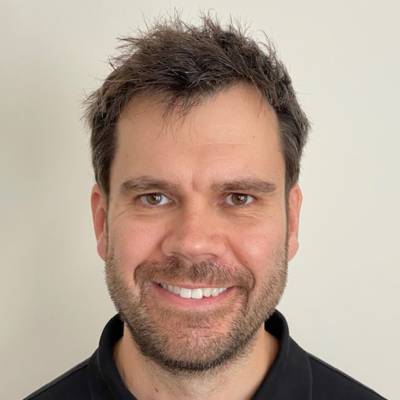Career change in the pipeline

Marcus Herbert
After being made redundant in 2020, pipeline systems and joint venture manager Marcus Herbert was awarded a fully funded place on our online course Decommissioning of Offshore Installations: Regulatory Aspects.
Now, he’s preparing to re-enter the industry with a new focus on helping operators make the transition from operations into decommissioning.
We got in touch with Marcus to discuss the course, how it kept him motivated through lockdown, and how it’s informing his future career plans.
This is Marcus’s story
I’ve been working in the oil and gas industry for just under two decades now. Originally starting out in finance, I was fortunate enough to be given the opportunity to move into production operations with an oil major operating out of Aberdeen. That led to a series of hugely enjoyable and rewarding roles where I led teams responsible for twenty-four-seven operations of gas pipeline systems.
A little over a year before the pandemic, I moved into a similar role, this time looking after an oil pipeline system, an area in which I was keen to gain experience. Regrettably, with the culmination of Covid-19 and a drop in the oil price, but also the fact that the system I was managing was transitioning from normal operations into a late-life/decommissioning phase, I was made redundant.
Redundancy and the chance to study for free
Redundancy was a horrible experience, made even more so by the pandemic. I was stuck at home, not able to do anything other than the occasional outing or DIY jobs around the house, while my wife was out working, all set against a backdrop of a very static jobs market.
Regrettably, with the culmination of Covid-19 and a drop in the oil price, but also the fact that the system I was managing was transitioning from normal operation into a late-life/decommissioning phase, I was made redundant.
The opportunity to study online couldn’t have come at a better time. It introduced structure to my day that was missing due to both my personal circumstances and everything that was going on around me. I thoroughly enjoyed being able to study at my own pace. I had a routine: gym in the morning, followed by coursework and studying, breaking it down into two-to-three hours each day.
Learning from others
I don’t have a legal background, but I could have spoken with the course coordinator Professor John Paterson for days about the regulatory aspects of decommissioning. He was hugely engaging. I especially enjoyed being able to share my own stories and experiences with colleagues on the course, and in hearing theirs. That level of interaction was really important, allowing me to learn from others while I studied on my own.
Beyond my operational experience, I actually knew relatively little about the regulatory aspects of decommissioning prior to starting the course. I had worked with operators who had reached cessation of production and as a consequence were withdrawing from pipeline systems, but like a lot of companies, we were really finding our feet with decommissioning programmes and in engaging with the regulator. Today, operators are trying to combine the physical process of removing offshore installations with the law that dictates how it should be done – and in practice that is extremely challenging.
The opportunity to study online couldn’t have come at a better time. It introduced structure to my day that was missing due to both my personal circumstances and everything that was going on around me.
Rewarding experience
My experience on the course was far more rewarding than I originally expected. I genuinely didn’t expect to walk away after three months thinking, ‘I can actually and practically apply what I’ve learned here going forward,’ but that’s exactly what happened. Being able to read legal documents concerning the regulatory aspects of decommissioning and then translate them into real, tangible actions in an operations scenario is hugely useful and exciting.
The past year has been challenging, there’s no doubt about that. The jobs market has been flooded with people who have been out of work for an extended period of time. However, I’m now in a position where I’m having conversations with potential employers about my studies during redundancy, and that has been really well received.
Looking to the future
Pre-pandemic, my career plan involved exploring opportunities in emerging oil and gas markets around the world with involvement in setting up joint ventures and operating pipeline systems. What I realised during my studies is that being able to manage the transition from operations into decommissioning will inevitably be a big part of that.
The course has absolutely set me up to consider decommissioning as a logical next step in my career and what I need to do.
The course has absolutely set me up to consider decommissioning as a logical next step in my career and what I need to do. Yes, I want to continue working in oil and gas pipeline systems – I find it extremely gratifying – but decommissioning will play a significant part, and so being able to bring an understanding of both the operational and regulatory aspects to the table, and sharing that with employers, has a huge amount of potential.
Follow in Marcus’ footsteps

Decommissioning of Offshore Installations: Regulatory Aspects
Join the same course that Marcus studied online. Gain expertise in legal issues in decommissioning oil and gas installations and earn credits towards an MSc or LLM.
View Marcus’ course
Sign up for funding alerts
Register and we’ll email you when we next have funded places available for online short courses.
Be the first to hear about funding

